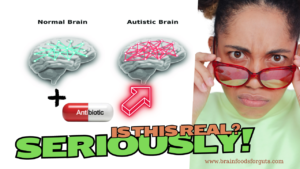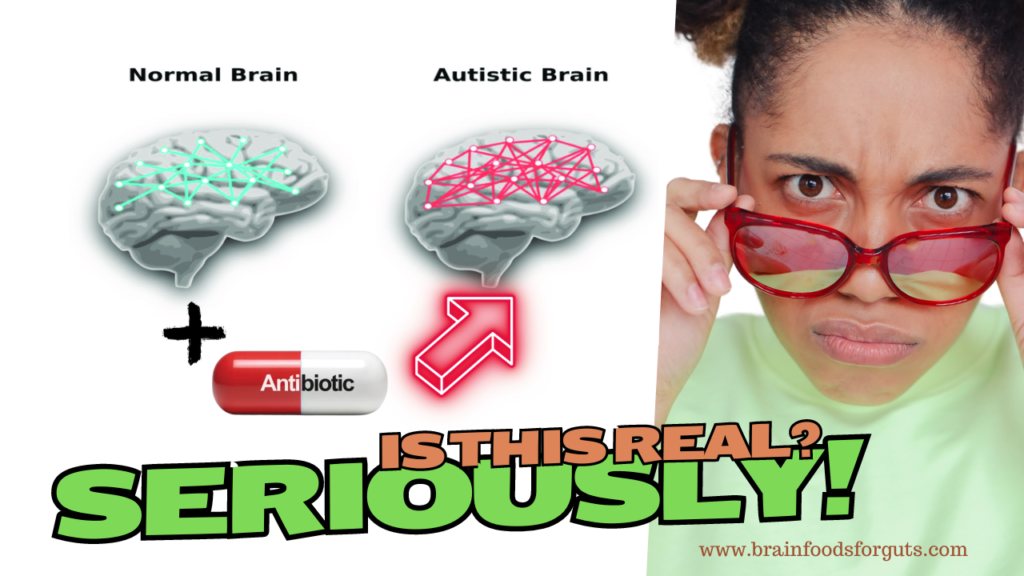 In recent years, the scientific community has increasingly delved into understanding the intricate relationship between antibiotic use and the development of autism spectrum disorder (ASD). This burgeoning field of research has sparked immense interest and debate, shedding light on a potential link that warrants careful examination and consideration.
In recent years, the scientific community has increasingly delved into understanding the intricate relationship between antibiotic use and the development of autism spectrum disorder (ASD). This burgeoning field of research has sparked immense interest and debate, shedding light on a potential link that warrants careful examination and consideration.
Understanding Autism Spectrum Disorder (ASD): Autism Spectrum Disorder encompasses a broad range of neurodevelopmental conditions characterised by challenges in social skills, repetitive behaviours, and communication difficulties. ASD affects individuals differently, ranging from mild to severe symptoms, and is often diagnosed in early childhood.
The Rising Concern: Antibiotics and ASD Emerging studies suggest a possible association between early antibiotic exposure and an increased risk of ASD. The delicate balance of the gut microbiome—a diverse ecosystem of microorganisms in the digestive tract—plays a pivotal role in maintaining overall health, including neurological development.
Antibiotics, while lifesaving in combating bacterial infections, indiscriminately target bacteria, disrupting this delicate balance. These medications eliminate harmful bacteria, yet they can also inadvertently diminish beneficial microbes crucial for the gut’s stability and overall immune function.
Gut Microbiota and Brain Health: Research highlights the significant influence of the gut-brain axis, emphasising the bidirectional communication between the gut microbiota and the brain. A healthy gut microbiome contributes to cognitive function, emotional regulation, and neurological development.
Disruptions in the gut microbial composition due to antibiotic exposure might potentially impact brain development, leading to alterations in neural pathways and signalling. This disruption has raised intriguing questions about its potential role in the onset or exacerbation of ASD symptoms.
Scientific Investigations and Findings: While the connection between antibiotics and ASD remains a subject of ongoing research, several studies have shown compelling correlations. A 2018 study published in the journal ‘Scientific Reports’ revealed that infants exposed to antibiotics within their first year had an increased likelihood of being diagnosed with ASD later in childhood.
Another study published in the ‘Journal of the American Medical Association (JAMA)’ Paediatrics found that antibiotic exposure during pregnancy might heighten the risk of ASD in offspring.
However, it’s important to note that correlation does not imply causation. Further research is crucial to elucidate the mechanisms underlying this association and to determine the precise role antibiotics may play in the development of ASD.
Considerations and Future Directions: The exploration of the antibiotic-autism link opens avenues for deeper investigations into preventive measures and alternative treatment approaches. Strategies like probiotic supplementation, dietary interventions, and judicious antibiotic use in early childhood might be pivotal in preserving the delicate gut microbial balance.
Moreover, personalised medicine and targeted therapies that consider an individual’s unique gut microbiome composition could potentially mitigate the risks associated with antibiotic use and its impact on neurodevelopment.
Conclusion: The link between antibiotics and autism spectrum disorder presents a compelling area of research, indicating a possible association that merits further exploration. As scientists continue to unravel the complexities of the gut-brain axis and its role in neurodevelopment, understanding these connections could pave the way for innovative interventions and strategies to promote neurodiversity and holistic health.
The journey to comprehensively understand the intricate interplay between antibiotics, the gut microbiome, and autism remains ongoing. This evolving field holds promise for enhancing our understanding of neurodevelopmental disorders and advancing strategies for early intervention and support.
As always, consult healthcare professionals for personalised medical advice and to navigate the complexities surrounding antibiotic use and its potential impact on neurodevelopment.
Note: This article provides an overview of current research on the potential link between antibiotics and autism but does not constitute medical advice. It emphasises the need for further investigation and highlights considerations without drawing definitive conclusions.

